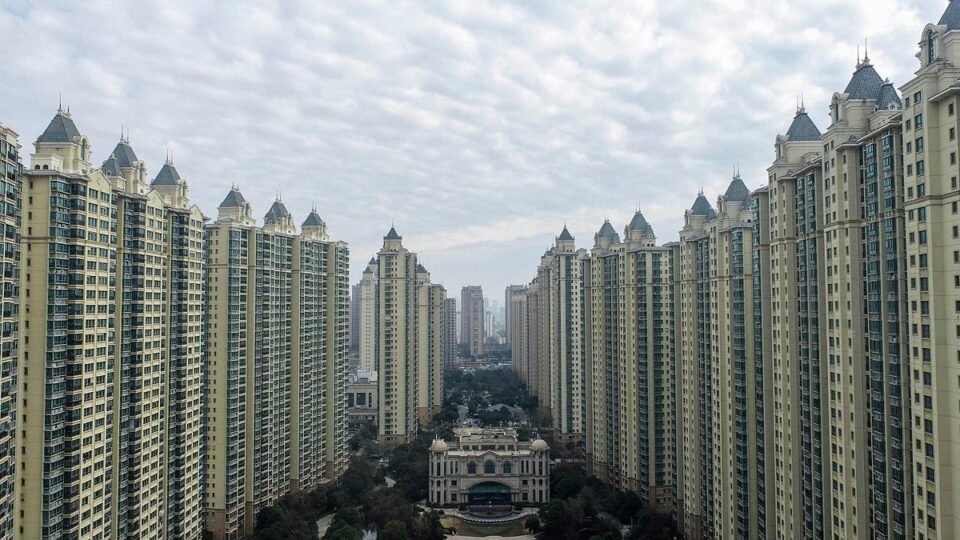The world’s most indebted property developer is being wound up.
Troubled Chinese giant Evergrande has been ordered into liquidation by a Hong Kong court in a move that could send shockwaves across the country’s housing market and the wider economy.
The ruling, issued yesterday by Hong Kong High Court judge Linda Chan, comes just over two years after Evergrande officially defaulted on a massive £260billion debt pile, triggering a cash crunch across China’s property sector.
The debacle left massive housing projects across the country unfinished and sparked moves from the government in Beijing to try and prevent a domino effect across the industry.
Since then, several rivals have followed the business into default.
The Hong Kong courts have issued winding-up orders for at least three smaller firms since 2021.
But matters took a turn for the worse yesterday as Chan called time on Evergrande’s efforts to keep itself afloat after lengthy talks with creditors to draw up a restructuring plan failed.
‘Enough is enough,’ the judge said. ‘I consider that it is appropriate for the court to make a winding-up order against the company, and I so order.’
The decision caused Evergrande’s shares to plunge nearly 21 per cent before trading was halted on the Hong Kong Stock Exchange.
The firm’s stock has lost over 99 per cent of its value in the last five years and carries a market value of just £213million, down from a peak of £42billion in 2017 and utterly dwarfed by its massive debt pile.
Related Articles
HOW THIS IS MONEY CAN HELP
Chinese authorities have also become involved, with Evergrande’s billionaire chairman Hui Ka Yan taken away by police in September and put under observation for suspicion of ‘illegal crimes’.
The ruling by the Hong Kong courts is set to be tested by whether it will be implemented in mainland China, where most of Evergrande’s projects and assets are based.
It is not yet known if the mainland courts will accept the decision. Chinese media reported Evergrande boss Shawn Siu saying the company’s structure was ‘unaffected’ by the order and it would do ‘everything possible’ to keep delivering its construction projects in the country.
But its woes could have wide-ranging effects on both the Chinese and global economy as the construction sector consumes vast amounts of raw materials such as steel and cement.
Russ Mould, investment director at broker AJ Bell, said: ‘The big question now is how this might impact the financial system if investors big and small only get a fraction of their money back, and aspiring homeowners don’t get the home they’ve bought as buildings remain unfinished.’
He added that the liquidation was also likely to make China an ‘even higher risk’ for foreign investors as the fate of Evergrande had created ‘so many uncertainties’ about potential ripple effects.
Banking giant HSBC is among those to have suffered due to exposure to the struggling sector, reporting in October that it had taken a £410million hit from the downturn.
The troubles in China’s property market come as the country attempts to grapple with a wider economic slowdown that threatens to derail its ambitions to overtake the US as the world’s biggest economy.
A shaky recovery from the pandemic, high levels of youth unemployment, a falling population and slowing demand for goods due to the cost of living squeeze have all combined to pile pressure on the ruling communist government and its leader Xi Jinping.
They have previously pledged to restore the country to greatness by 2049 under a ‘rejuvenation’ plan that includes boosting economic prosperity.
Some links in this article may be affiliate links. If you click on them we may earn a small commission. That helps us fund This Is Money, and keep it free to use. We do not write articles to promote products. We do not allow any commercial relationship to affect our editorial independence.

